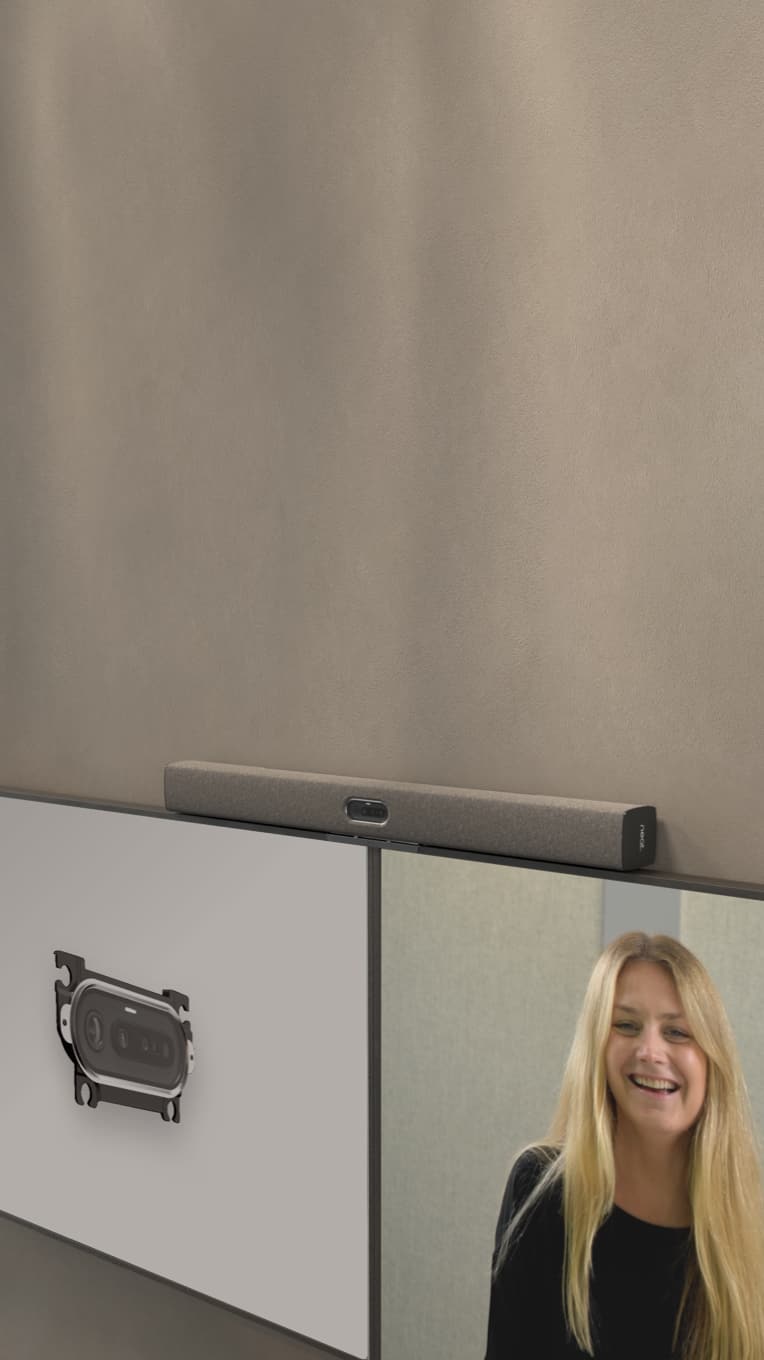9 Ways to Avoid & Overcome Spreading Yourself Too Thin
Hayley Spooner, Sep 15, 2022

We all like the idea of increasing productivity and getting more done each day. But there’s always a tradeoff, and boosting your productivity can sometimes result in spreading yourself too thin. This creates the opposite of productivity and comes with a range of implications. Here’s how to recognize when you’re doing too much and find a solution.
Key Takeaways:
- Learning how to prevent burnout means first recognizing the signs: a lack of concentration, feeling sick, struggling with simple tasks, falling behind and a blurring of days.
- People spread themselves too thin for many reasons, including taking on too many duties, improper planning, a lack of organization and helping others instead of themselves.
- Solutions for spreading yourself too thin include decluttering, taking time off, saying no and asking for help.
Signs You’re Spread Too Thin
The first step in avoiding or overcoming burnout is to recognize when you might be heading that way. Here are five signs that may indicate you’re doing too much:
1. You Lack the Ability to Concentrate
With so many tasks, activities, meetings and events on your schedule, it’s no wonder you feel like everything is competing for your attention. Everything feels like a priority, which makes it hard to zero in on just one thing at a time. While you might be able to split your attention between items for a while, it’s not something you can (or should try to) sustain.
2. You’re Always Falling Behind
When you already have a full stack, Murphy’s Law might come along and either add to it or send it toppling. As the old adage goes, “Anything that can go wrong will go wrong” — usually at the worst possible times. Tasks might take longer than you planned, leading to a backlog. With so many commitments, you have little flexibility to play catch-up when things don’t go as planned.
3. You Always Feel Sick, Irritable or Anxious
Having too much to do can suck the life and joy out of anyone. It leaves you little time for creativity, rest and relaxation. We carry this resentment inside us in the form of anxiety, irritability or feelings of sickness. Spreading yourself too thin for too long can even manifest as a physical illness.
4. Everything Feels Like a Chore
Taking two seconds to sign for a package feels like an interruption to your day. Replying “Confirmed” to a text message or email is the new Mount Everest. And walking down the hallway to refill your water bottle? Who has time for that?
When small things start feeling like big things, you probably have too much on your plate. You might be scheduling every minute of your day (with or without realizing it) so there truly is no time for anything else. And if that’s the case, your to-do list is too long.
5. Your Days Blur Together
Yesterday feels like it just happened. Last week feels like a month ago. You’re not sure whether you ate that tuna fish sandwich for lunch on Monday or Tuesday.
So much happens in a day that you can’t remember many of the fine details. When days start to blur together, it’s a sign you might be moving too quickly or doing too much. Important tasks, meetings or conversations are more likely to fall through the cracks because your brain simply can’t remember everything you’ve done or talked about.
Common Reasons You Might Feel Spread Too Thin
Spreading yourself too thin happens to all of us. But in many cases, it’s within your own control.
Here are five ways you might have reached this point:
1. Unforeseen Tasks Pop Up or Take Longer Than Planned
Even the best-laid plans can be subject to surprises. Some tasks might take longer, or you might face new tasks or challenges that you never saw coming. This adds more to your workload and will take more of your time and effort.
2. You Don’t Have Enough Reliable Help
Asking for help gives you a way to share your load and find some relief. But when there’s no one around you who can or will help, you’re left to figure things out on your own. This is not only isolating, but it can also lead to burnout and low morale.
3. Everyone Comes to You to Solve Their Problems
Being everyone’s problem solver is both a compliment and a curse. It’s flattering that others think so highly of you that they turn to you for help. But helping takes time — time that you could be spending chipping away at your own to-do list.
There’s also the fact that if you’re helping others with their problems, they’re not learning how to be their own problem-solvers. Teamwork makes the dream work, but everyone has to be willing to pull their own weight, too.
4. You Take on Additional Duties
You never want to let anyone down. When no one else steps up, that’s your cue, and you take it with pride.
Or maybe you want to be the hero. You love the attention and the compliments that come with it. You see every opportunity as a chance to invest in yourself. You want to be a people-pleaser and never want to disappoint.
Wherever the case, taking on additional duties can be a good thing at times. But when you’re constantly volunteering and taking on more than you’re letting go of, you can end up spreading yourself too thin.
5. You Don’t Have a Good Way to Organize Your Work
Organization helps you keep your day on track. It shows you what you have to do at any given moment so you can better manage your time. Without a good way to organize your work, you risk wasting precious time, which can lead to delays and feelings of burnout.

9 Ways to Avoid & Overcome Spreading Yourself Too Thin
Spreading yourself too thin can have lasting complications in the workplace, at home and on your health. Here are nine ways you can avoid and overcome spreading yourself too thin to prevent burnout.
1. Declutter Your Day
A chaotic space can lead to a chaotic mind. It’s easier to feel calm and organized when you’re surrounded by the same. Take a few moments each day to tidy up. Tidy your desk, put dishes away, fold laundry or do anything else that makes your space feel cleaner and decluttered. If you work from home, close the door on messy rooms to avoid having that energy spill into your workspace.
Simple actions like these can help you feel more put together and even motivate you to organize your work in the same manner. Decluttering also has major mental health benefits, helping put you in a better frame of mind.
2. Take a Day Off to Regroup
Time off can do wonders for the mind. It allows you to focus on anything but your to-do list. Take a day off to rest and reset so you can come back to work with a clearer head.
For example, you might spend a day hiking to reconnect with nature and disconnect from technology. Or, you might treat yourself to ice cream, your favorite bookstore or the local golf course to do something that doesn’t feel like work.
3. Understand Your Limitations
We all have limitations. In some cases, we’re limited by our skills and knowledge. In others, it might be access to tools and technologies. And we’re all limited by our time — there are only 24 hours in a day, and they can’t all be used for work.
Recognize the unique limitations you face at work. Knowing these can help you avoid taking on more than you can handle. Also, believe that limitations are not a weakness, nor are they a bad thing. Even the fiercest go-getters are limited in some ways, so learn to be okay with not being able to do it all.
And if you can’t say no to certain tasks, find ways to make them easier and less time-consuming. For example, Neat devices eliminate many of the traditional headaches of video calls to ensure your meetings are more productive. Crystal-clear audio and video ensure each person is properly seen and heard, even when people talk over each other. Neat Boundary also reduces background noise and visual distractions so participants can focus on the conversation.
4. Delegate and Ask for Help
Asking for help is not a weakness. Limitations mean we simply can’t do it all alone. That’s why it’s important to learn how to delegate and ask for help. Know who you can count on and learn their limitations, too. This way, when opportunities to delegate arise, you’ll know exactly who to turn to so you can keep moving forward.
5. Say No
Saying “Yes” to too many things can leave us lacking joy. We end up taking things on that don’t make us happy, stress us out or make us feel inadequate.
Don’t set yourself up for disappointment! Instead, discover the freedom and power of saying “No.” This helps you think carefully about what you really want to commit yourself to.
6. Prioritize Your Wants and Needs
Take a long, hard look at your task list. You’ll probably find things on there that are absolute must-dos. But you’ll also find some things you want to do, but the world won’t stop turning if you don’t do them.
Now, take a few moments to sort your tasks into those two buckets. Take care of your needs (the must-dos) first, then save the wants for later if you still have time. Knowing you’ve taken care of the most critical things can be a huge weight off your back. The wants can wait for another day if there’s no time left, and you don’t have to stress over them too much since they aren’t as important as the other tasks.
7. Stop Explaining Yourself to People
You have enough to worry about. Making sure people understand you should be among the least of your concerns. In most situations, you don’t owe people an explanation. Taking time to explain your actions, decisions or thoughts only takes up more of your precious time and delays you from knocking out the things you need to do.
Not explaining yourself to others comes with the power of declining requests. Remember: “No” is a full sentence and can be left at that.
8. Stick with the Essentials
When you’re spreading yourself too thin, it’s time to go back to the basics. Strip down your workload to the bare essentials.
For example, if you find that writing a paper to-do list is faster and easier than typing all of your tasks into a checklist app, by all means, do it. If you find yourself toggling between three devices and 50 apps and software, stop and think about which of those you really need and which ones just add to the noise.
Neat devices help make this process more natural. For example, you can launch Zoom or Microsoft Teams meetings with a simple push of a button instead of going through a multi-step process. Neat Symmetry automatically adjusts to frame your face in view when sitting, standing or moving so you can avoid trial-and-erroring with your webcam.
9. Help Others Help Themselves
When the people around you feel empowered to solve problems and keep moving forward, everyone wins. Rather than doing things for other people, show them how you do them so they can participate next time. Help them find resources to answer their questions or solve problems so they don’t have to ask for help. You’ll still look like a hero because you’ll have given them a gift that keeps giving.
Building Healthy Habits to Prevent Burnout
Learning to recognize burnout is the first step to preventing it. We all have days where we spread ourselves too thin. The key is not to make it a habit.
We designed Neat devices to help you keep meetings on track and make every interaction as productive as possible. Never miss a meeting, avoid overscheduling and make video conferences something you look forward to. Check out Neat devices to learn more.
Sources
Recognizing and easing the physical symptoms of anxiety. Harvard Health Publishing.
The power of saying no. Psychology Today.




